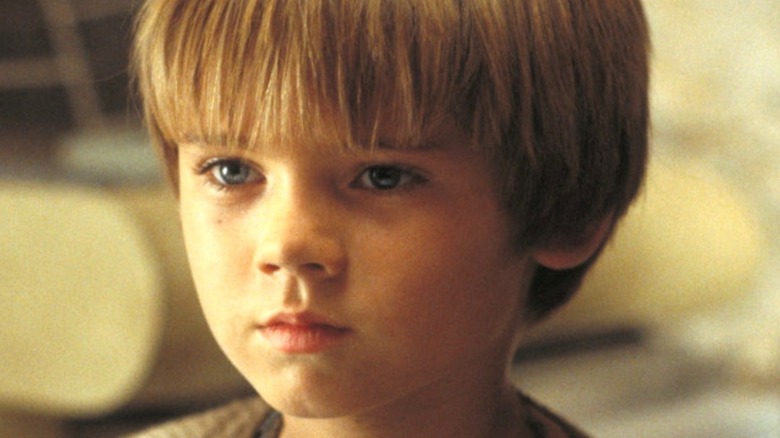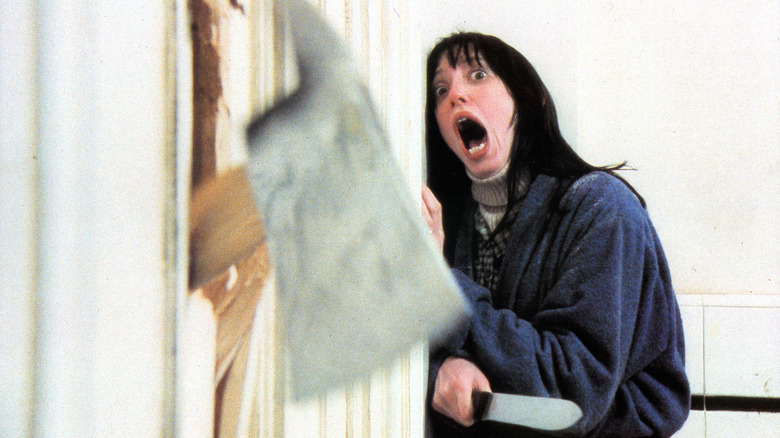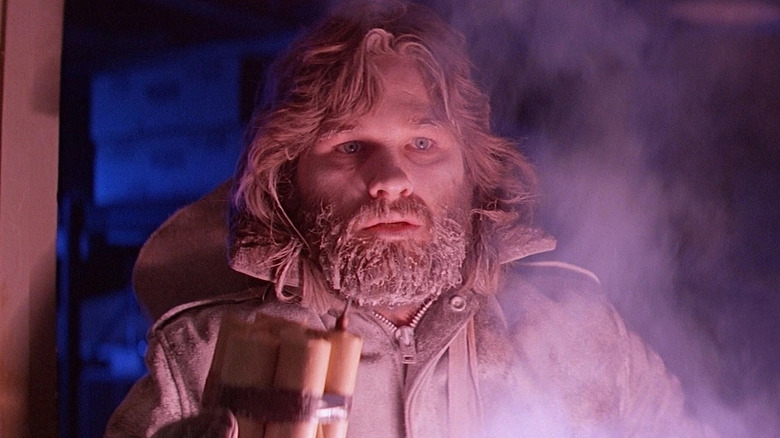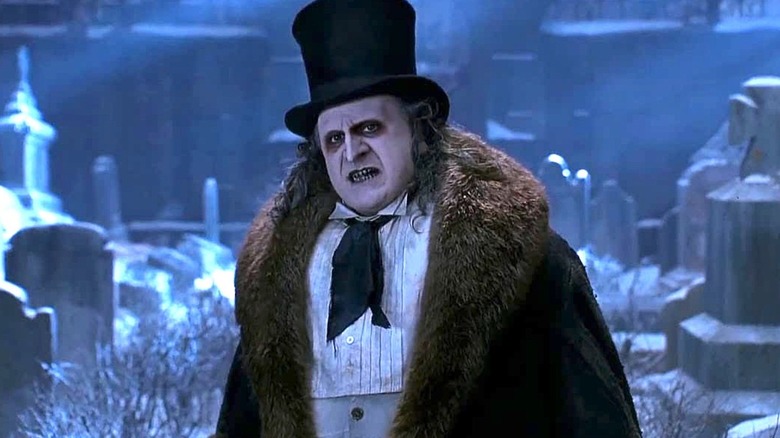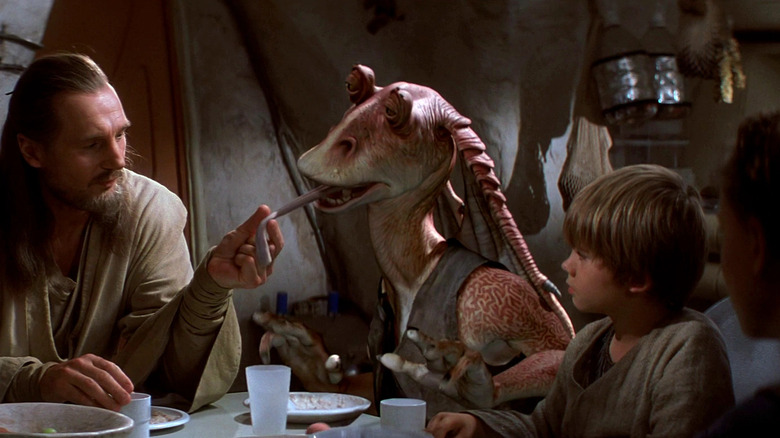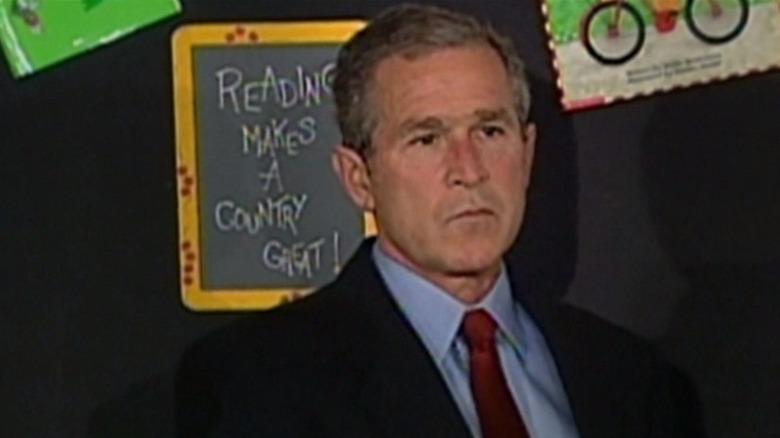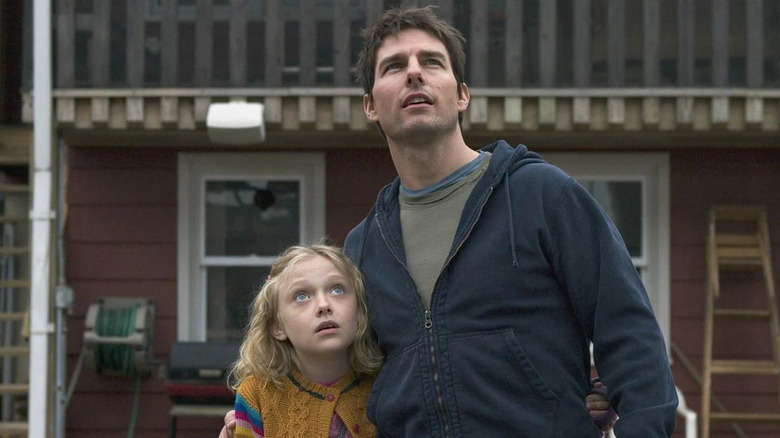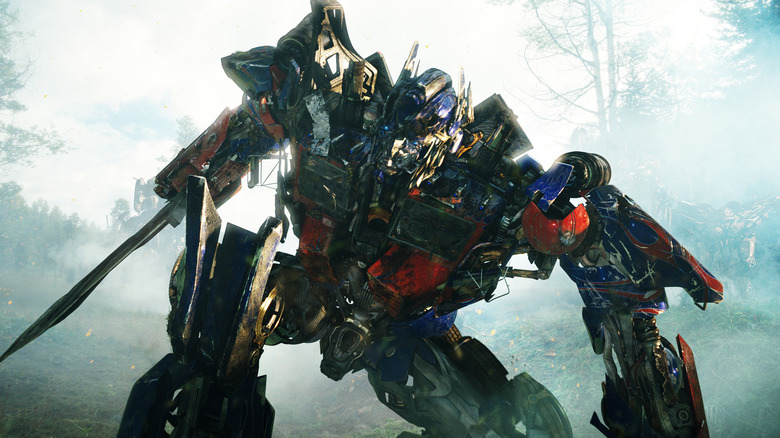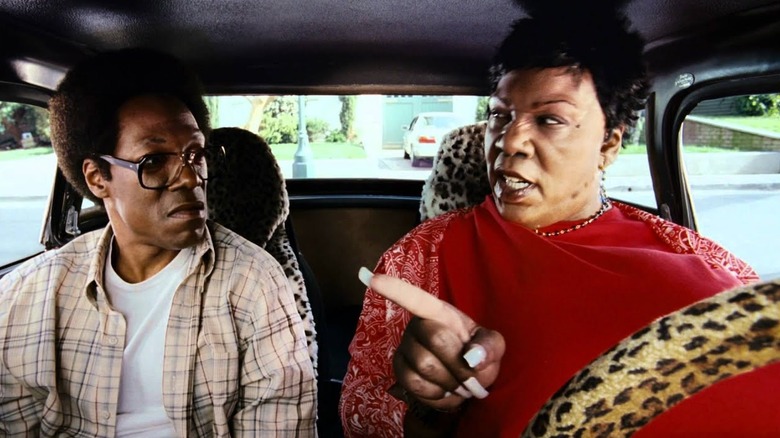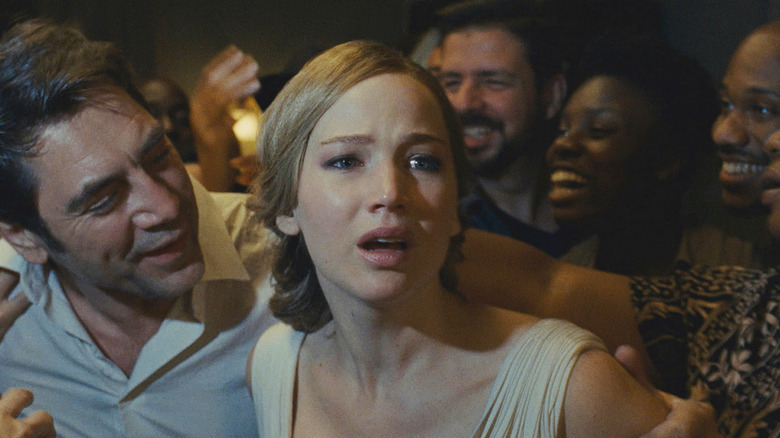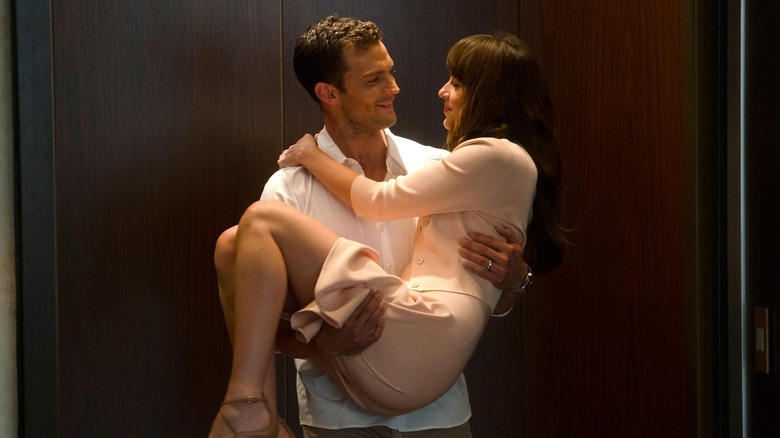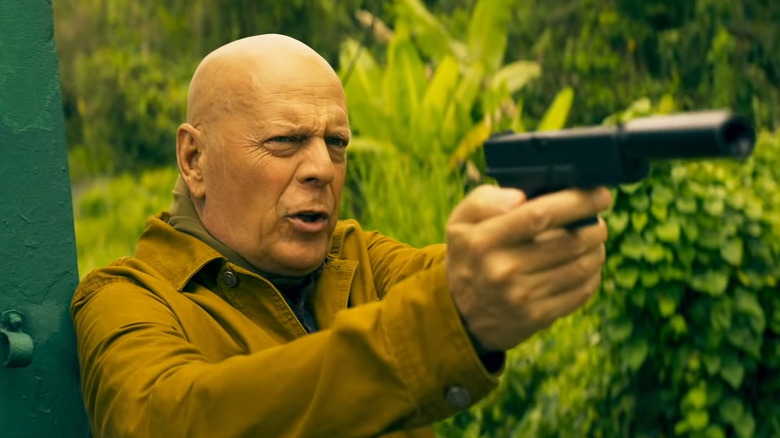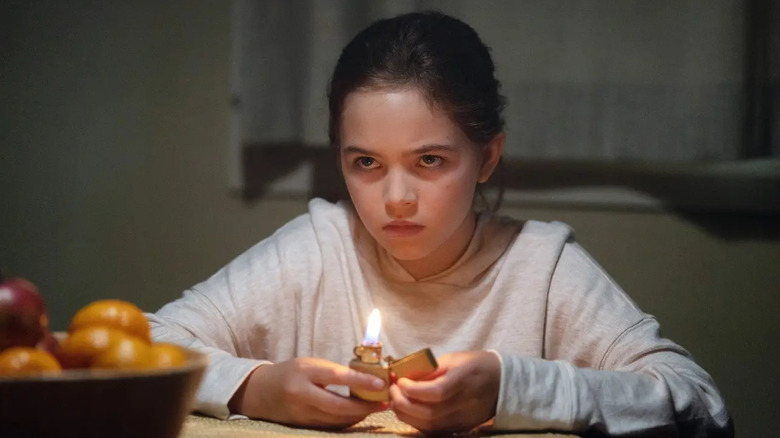The Razzies' Most Controversial Nominations Ever
For going on a century, the Academy of Motion Pictures Arts and Sciences has been presenting Oscars to the producers, writers, directors, actors, and technicians behind what its voters deem to be the best movies of the year. Some movie lovers and perennial Oscar watchers enjoy the pomp and circumstance, not to mention the horse race. But others find the self-congratulatory nature of the ceremony distasteful. For moviegoers who weren't so satisfied with their ticket purchases and who might think the Hollywood elite could stand to be taken down a peg, there's the Razzies, an organization founded in 1981 to highlight the worst that cinema has to offer.
For the most part, both industry insiders and members of the public who pay attention to such things have accepted the premise that the Razzies aren't supposed to be as self-serious as the Oscars. Trophies often go to big stars and previous Oscar winners who happen to make a movie that crosses the line of good taste. But every now and then, this decidedly less reverent awards body crosses that line with nominations that go after low-hanging fruit. The Razzies have also awarded worsts of the year to films and artists that have gone on to become beloved classics. And as cultural attitudes have changed, the organization's insensitive schtick seems less and less funny. With these picks, the Razzies waded into the controversy and compromised their own already tenuous stature within the awards circuit.
Shelley Duvall for The Shining
The Razzies got off to a rocky start in their inaugural year when the organization nominated 1980's "The Shining" for two awards: worst director for Stanley Kubrick and worst actress for Shelley Duvall. Since the Razzies were a brand new concept, their definition of "worst" had yet to be established. But even without a metric, the inclusion of "The Shining" was curious at best. The film opened in limited release to mixed reviews, though it eventually went on to become a hit that's now considered to be one of the best horror movies of all time. At the time, critics and audiences didn't hate it; some just didn't get it, and most of the criticism had to do with the ways in which Kubrick deviated from Stephen King's book.
Time would prove the Razzies partially right in the case of Kubrick and utterly wrong in the case of Duvall. Many years after being cruelly singled out for her now acclaimed performance, Duvall went public with stories of the mistreatment she suffered on set. "The Shining" filmed for 500 days, and under Kubrick's exacting and often unprofessional direction, Duvall was forced to sometimes do more than 100 takes of scenes in which her character, Wendy, was screaming, crying, or in some other state of distress. The experience left a then 19-year-old Duvall suffering from anxiety attacks. In 2022, the Razzies rescinded the dubious honor they'd bestowed upon Duvall, citing "extenuating circumstances."
Ennio Morricone for The Thing
It's not surprising that this John Carpenter cult favorite showed up on a list of the worst films of the year back in 1983. "The Thing," which debuted in theaters during a recession up against "E.T. the Extraterrestrial," was widely panned by critics and struggled to find an audience (in the years to come, it would find a devoted fan following, with some calling it the best sci-fi movie of all time). What was surprising was that its lone Razzie nom was for its score. Ennio Morricone was then and remains one of the most celebrated composers of film scores in history. In his 70-year career, he won nearly 100 awards, including two Oscars, but he was apparently far too ahead of his time for the Golden Raspberries.
The incredibly prolific Italian composer (he has more than 500 credits to his name) was best known for his melodic spaghetti Western collaborations with Sergio Leone. For Carpenter and "The Thing," he went in a different direction. With his director's input, he crafted music that was sparse, synth-y, and foreboding, the sound of which became the template for future sci-fi and horror movies. Today, Morricone's soundtrack for "The Thing" ranks among his fans' favorite compositions. This is one of many instances in which the Razzies were shortsighted and spectacularly wrong.
Danny DeVito for Batman Returns
For actors, taking on the role of a Batman villain is a high-risk, high-reward proposition. Some, like Joaquin Phoenix and the late Heath Ledger, win Academy Awards for their performances. Others, like Halle Berry and Danny DeVito, get nominated for (and in Berry's case, win) Razzies. While the otherwise talented Berry's Catwoman never stood a chance in a poorly conceived movie, DeVito's Oswald Cobblepot-slash-the Penguin menaced Gotham in a financially successful film that got mixed to positive reviews and has since come to be appreciated for the dark, comic book-y, camp-fest that it was.
Maybe Razzie voters objected to how surreal and disturbing director Tim Burton and DeVito's take on the character was. For this Oswald Cobblepot, Penguin wasn't just a nickname; it was a description of his grotesque mutations and his abnormal behaviors. An extremely committed DeVito wore tons of prosthetics and makeup and ate raw whole fish (as well as mouthwash combined with algae) to make the character seem like an actual penguin-human mutant.
DeVito did so much with his role in "Batman Returns," audiences probably remember him more than they do Michael Keaton's Batman, who (despite his perfectly capable performance) is the least interesting part of his own movie. Sure, DeVito's Penguin isn't as realistic as Colin Farrell's in 2022's "The Batman," but he was never supposed to be. His Razzie nomination is proof that the cynical voting body can't always read filmmakers' intent and doesn't know how to have fun.
Jake Lloyd and Ahmed Best for The Phantom Menace
"Star Wars: Episode I — The Phantom Menace" may have been the most anticipated film of all time ... and one of the biggest letdowns. After 16 years, "Star Wars" fans eagerly awaited the first installment of the prequel trilogy. Initial reaction was muted but still largely complimentary, though opinions soured from there. In hindsight, most critics and fans agree that "The Phantom Menace" is an ambitious mixed bag of ideas that did and didn't work. The film received nine Razzie nominations, including worst director and worst screenplay. But it was supporting actor nominations for Jake Lloyd as young Anakin Skywalker and Ahmed Best as Jar Jar Binks that had lasting negative effects.
Lloyd, who was 9 years old at the time of filming, was singled out for what many observers felt was a poor performance. As the film's reputation sunk, the public bullying of its young star only increased. As a result, Lloyd retired from acting at 12 and struggled with mental health and legal troubles into his adulthood. Best, who won the category and was also nominated for worst new star, endured similarly traumatic experiences. His character was thought to be racially insensitive and too silly for the rest of the movie, but that had more to do with George Lucas, his conception of Jar Jar, and the screenplay. The backlash drove Best to suicidal ideation, and the Razzies helped fuel the fan hate that victimized these novice actors.
Fahrenheit 9/11
In 2005, Michael Moore's "Fahrenheit 9/11" won the Academy Award for best documentary feature, but it was also nominated for four Razzies. The film about the lead-up to the Iraq War (and erroneous justifications having to do with Afghanistan, Al Qaeda, and the September 11th terrorist attacks) wasn't named worst director or worst picture. Quite the contrary. Its backward compliment nominations were for worst actor (George W. Bush), worst supporting actor (Donald Rumsfeld), worst supporting actress (Condoleezza Rice), and worst on-screen couple (George W. Bush and Condoleezza Rice), all of whom unknowingly played themselves in Moore's narrated mash-up of the day's news coverage.
The War on Terror era was politically charged, especially when it came to art that dared to question blind patriotism so shortly after the attacks on the World Trade Center, the Pentagon, and Flight 93. While many critics and audiences applauded Moore for his stance, the Razzies' attempt to wade into politics was meaningless and inelegant. Giving the then-President and Secretary of Defense trophies for bad acting (Bush and Rumsfeld won their categories) didn't amount to a socio-political statement, especially in the midst of ongoing conflict. Instead, it seemed like the organization was trying to pile onto Moore's criticisms without having anything to add to the conversation. Art can speak truth to power, but an anti-awards show that exists to mock artists has a harder time pulling off that type of protest. The Razzies tried this tact again with Rudy Guiliani's nomination for "Borat 2."
Tom Cruise for War of the Worlds
The Razzies have a tendency to shine their unwanted spotlight on polarizing movies or projects that took big swings and missed. Tom Cruise's nomination for worst actor for "War of the Worlds" didn't fit the mold. The 2005 adaptation of the famed H.G. Wells novel, directed by Steven Spielberg, was well-liked by most critics and did well enough at the box office. It was, at worst, a slightly underwhelming success if only because of the star power of its director and leading man. So what went wrong for Cruise? An infamous media tour that ended on Oprah's couch.
While promoting the film, Cruise turned himself into a tabloid figure by coming out against the use of anti-depressants in regard to fellow actor Brooke Shields' postpartum depression during a bizarre interview on "The Today Show." Then, Cruise got a little too excited about his new relationship with actress Katie Holmes during his appearance on "Oprah." The cringe-worthy couch-jumping incident was another blow to his celebrity reputation.
Cruise got two extra Razzie nominations in the category of most tiresome tabloid target: one for his anti-psychiatry tirade and one for his overreaction to being asked about Holmes. That would've been enough, and someone as rich and famous as Cruise can withstand those metaphorical punches. But his performance in "War of the Worlds" was solid and entirely unrelated to his personal shenanigans, and the unwarranted Razzie nomination tainted the public's perception of a better-than-average Spielberg summer blockbuster.
Transformers: Revenge of the Fallen
2009's "Transformers: Revenge of the Fallen" isn't a good movie. In fact, it's the one entry on the list that might have deserved its Razzie nominations, if you buy into the idea that awards for worsts should exist at all. The sequel to 2007's stupid but fun "Transformers" was deemed too long, too slow, too boring, too loud, and ultimately forgettable when compared to the original. It received seven Razzie nominations in total, winning worst picture, worst director, and worst screenplay. The problem wasn't that "Transformers: Revenge of the Fallen" was nominated; it was how.
The organization used its recognition of the ongoing war between the Autobots and Decepticons to make a bunch of cheap jokes at the expense of transgendered people rather than to poke fun at an actually bad movie for once. After or in place of its many mentions, the Razzies put the offensive moniker "Trannies, too." The misguided attempt at humor was not only mean-spirited, but it was also nonsensical and stupid.
Worse still, the voting body didn't learn its lesson. They continued using the slur in nominations as a running joke through the fourth "Transformers" movie. While there was never a collective outcry about the reference (at least not big enough to steer media attention), and while most media outlets reprinted the regrettably-phrased nominations as written, people noticed and lamented how out-of-touch the Razzies were.
Eddie Murphy's worst actor of the decade award
Eddie Murphy is a groundbreaking comedian and movie star known for his big smile and even bigger performances. But when he received a Razzie for worst actor of the decade in 2010, Murphy wasn't laughing. His cumulative nominations were a deciding factor in his six-year break from the movie business. In total, Murphy was called out by the Razzies 14 times for starring in (and occasionally writing and directing) films like "Harlem Nights," "The Adventures of Pluto Nash," "Meet Dave," and "Norbit," the last of which netted him five nominations and three wins.
Films made by Black creatives (Tyler Perry's "Madea" movies, for example) often get harsher criticism than similarly minded comedies made by white creatives, as Chris Rock pointed out in a 2014 essay in The Hollywood Reporter. The audiences they're made for often like them much better than the entertainment industry and critics groups at large, yet they're judged by bodies like the Razzies, the founding and membership of which are suspect to begin with.
Murphy did eventually receive the organization's Redeemer Award, handed out to previous "winners" who went on to make better quality work, for his role in 2019's "Dolemite Is My Name." He was widely expected to earn an Oscar nomination, too, but was snubbed. We can't directly blame the Razzies, but that special worst actor award didn't help Murphy's standing in Hollywood.
Jennifer Lawrence for mother!
Just as the Razzies sometimes take heat for targeting Black films, they've also come under the microscope for their scrutiny of women. Controversial female-led movies like "Showgirls" racked up record nominations and wins including for their lead actresses, but awards pundits and Jennifer Lawrence fans had a much bigger problem with her nomination for worst actress in Darren Aronofsky's even more divisive film, "mother!."
"Mother!" is a tough watch and certainly isn't everyone's cup of tea. Some critics and viewers felt it was pretentious while others were put off by its deeply upsetting climax (if you know, you know) which resulted in its notorious F Cinemascore. But still, the avant-garde allegory had more positive than negative reviews, and enough people sang its praises that the film and Lawrence received some legitimate and prestigious accolades. Even those who vehemently disliked "mother!" were nevertheless impressed by her efforts.
The problem with "mother!" wasn't Lawrence's acting, if there was a problem at all, it was an arthouse movie that just didn't work and wasn't widely seen by general audiences. It's fine if Razzie voters wanted to insult director Darren Aronofsky's writing and direction with worst of the year nominations, but there was no reason to lump Lawrence in with his perceived missteps.
The 2019 nominations
In 2019, the Razzies took aim at films like Will Ferrell and John C. Reilly's much-maligned Sherlock spoof, "Holmes & Watson," and Michael Moore's follow-up to "Fahrenheit 9/11," "Fahrenheit 11/9" (Donald Trump took home the worst actor award this go-round in place of George W. Bush). No single nomination caused a stir. Instead, a tip from a voter sent to The Hollywood Reporter's Chris Gardner threw the ethics of the entire organization into question.
The anonymous whistleblower alleged that, in several categories, the five nominees didn't reflect the five candidates who actually received the highest vote totals. For example, "The Meg" was ranked the 11th worst movie of the year according to Razzie members, yet it mysteriously made the cut for worst picture. In the opposite direction, "Fifty Shades Freed" was the top vote-getter for worst remake or sequel, but the steamy romance was left off the list. That trilogy's star, Jamie Dornan, got enough votes to land a worst actor nomination, as did embattled actor Kevin Spacey for his role in "Billionaire Boys Club." Curiously, both were missing come nomination day, the tipster assumed for different reasons.
While a corrupt Razzie organization might not seem like a big deal, the idea that the group's founder, John Wilson, was choosing losers while pocketing voting members' fees was still problematic. Wilson blamed the discrepancies on a technical glitch, but 2019 may have been the beginning of the end for the Razzies.
The Bruce Willis category
Things just got more embarrassing for the Razzies after the vote-rigging scandal. Bruce Willis was once the star of top-tier action flicks like "Die Hard" and "Armageddon" and respected adult dramas like "Pulp Fiction" and "The Sixth Sense." But by the 2020s, he had become the butt of jokes for making multiple low-budget direct-to-video movies a year with titles like "Fortress" and "Out of Death." Willis was typically a supporting player in these projects, if not a glorified cameo. He made so many of them in 2021 alone that the 2022 Razzies created a whole category for him: worst performance by Bruce Willis in a film.
Sadly, shortly after their annual announcement, the actor went public with his aphasia diagnosis and subsequently retired from making movies altogether. Aphasia is a condition that can affect a person's cognition, including their ability to communicate. Willis' family revealed that he'd been suffering from the disorder for years, and it came to light that he'd been acting in a limited capacity, perhaps with the aid of an earpiece, so that he could bank films before his retirement became absolutely necessary.
The Razzies apologized and rescinded the special Bruce Willis award shortly after. Razzie reps first crudely suggested that maybe Willis' agents shouldn't have let him work so much under the circumstances, but they later changed their tune and said they understood why he might want to "go out with a bang."
Ryan Kiera Armstrong for Firestarter
Some corners of film fandom have been calling for an end to the Razzies for some time now. In the internet age, people don't see the point in mocking movies months after they've been released when bad films get dragged on social media instantaneously. Those calls reached a fever pitch in 2023 with the nomination of Ryan Kiera Armstrong — who was 11 at the time of filming — for her performance in the remake of the Stephen King thriller, "Firestarter."
The film, which also stars Zac Efron, was poorly reviewed and criticized for its wooden acting, but neither critics nor audiences were particularly vicious to Armstrong (though some couldn't help themselves from comparing Armstrong to Drew Barrymore, who originated the role as a child actor). The consensus was that 2022's "Firestarter" was a subpar adaptation of King's source material. The backlash to Armstrong's inclusion in the Razzie worst actress lineup was swift, and two days later, the organization was forced to backtrack from a nomination for the third time. The Golden Raspberries also instituted a new rule: future nominees must be at least 18 years of age; that is if the increasingly irrelevant Razzies survive this latest debacle.
